Tips For Early Startup Founders
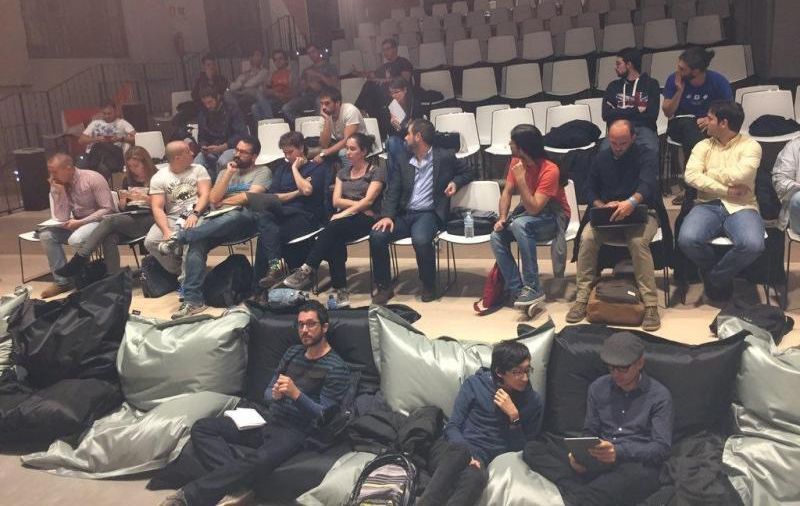
Next week, I will be traveling to Madrid to speak at the Demo Day of the 22nd edition of the Tetuan Valley incubator.
I am so honored and excited to be speaking at that event. Our entrepreneurial journey started precisely at Tetuan Valley, seven years ago. Back then, Ignacio and Miguel, two inexperienced but passionate novel entrepreneurs launched their startup The Task Ninja. You can see us in the picture above, at the left, in Sep 2015.
The startup failed miserably (we were too early for the market, or that's at least what you are supposed to say :), but it was the beginning of an exciting journey that took us to be the proud co-founders of Companio, a successful business that serves more than a thousand customers thanks to an amazing team of more than forty people. And it all started at Tetuan Valley...
Add Value To The Startups
When they asked me to speak at the conference, the first thing I wondered was how to add value to those early startup founders. I attended a talk from the CEO of Hawkers that was a 15-minute brand-masturbation exercise about how cool the founders of Hawkers were.
I remember feeling pretty annoyed by this guy who basically got on stage to brag about himself and his business, without adding value to the audience.
So I decided I wanted to do something different, and focus on actionable tips for these brave early startup founders. My goal is to use Companio's story as a vehicle to enumerate a series of lessons I have learned throughout these last four years.
When reviewing the slides, I realize this may be valuable information to share on the blog too. So hereby let me introduce you to my personal and opinionated...
List Of Tips For Early Startup Founders
Remember, these are based on my experience and reflect my subjective points of view. Companio is a bootstrapped business and we built it from the ground up, with no venture capital. That means your own experience may be completely different, and you don't necessarily need to agree with everything. These are not dogmas, just food for thought.
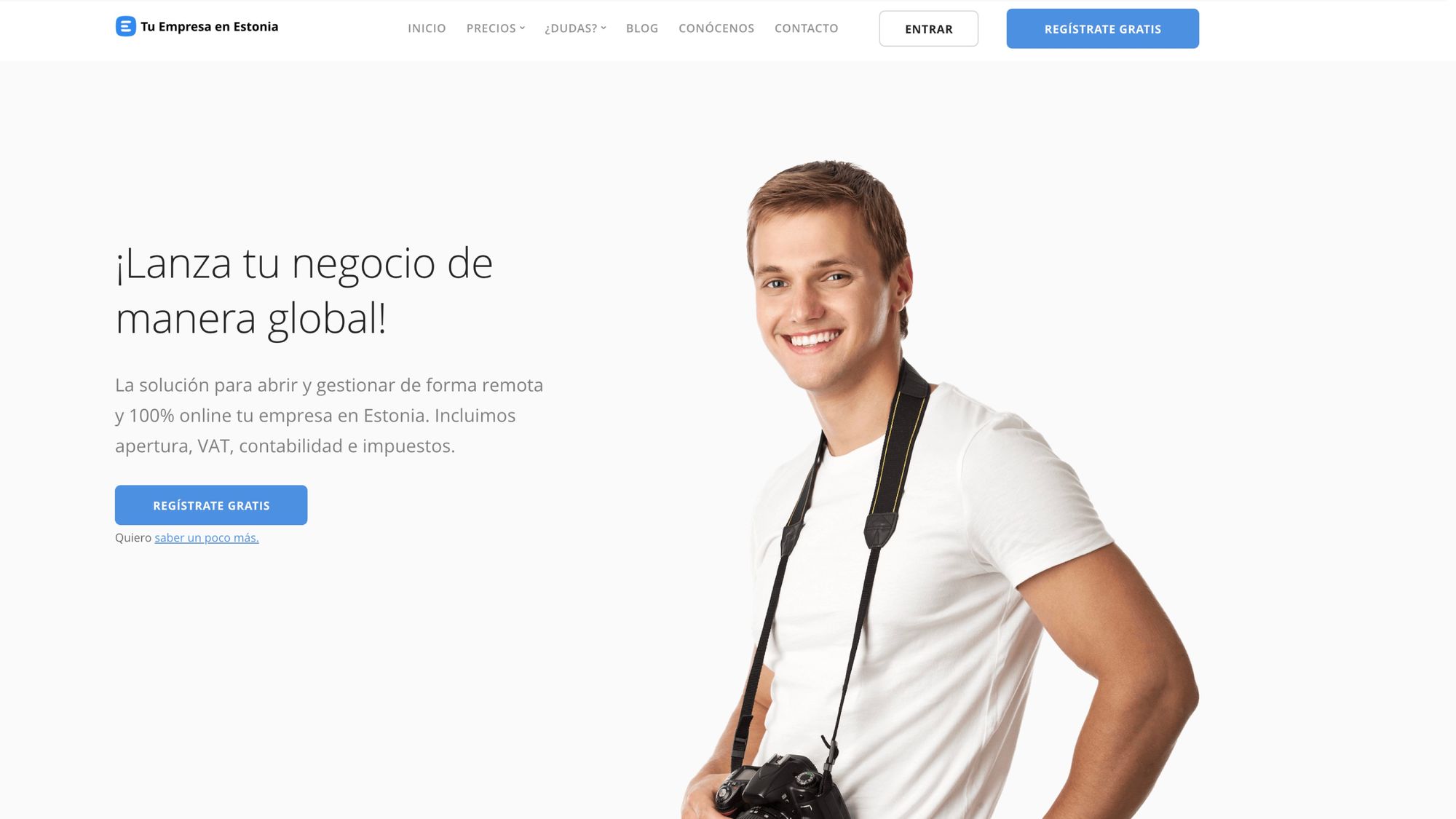
Be Naive Enough To Think It Will Work. Otherwise, It Won't
I already talked about how being naive allowed me to become a minimalist composer, record fourteen albums, and tour the world, playing in front of audiences from Brazil to Iceland.
When I decided to buy a piano and learn how to play by just listening to my favorite composers, without classical training, I didn't stop to judge my idea. I just went for it. I quit my band, started playing the piano and practicing, and three months later, I recorded and published my first album.
That first album is obviously quite raw and imperfect and my technique is poor. But I got better. By my fifth album, I had found my style and was being invited to participate in festivals and music events.
If I had stopped to judge that first album, I would have probably stopped composing. That would have prevented me from continuing that amazing journey.
A startup is exactly the same. When I started Companio, I had no money, no contacts in Estonia, and no IT platform. I just had this underserved market in front of me and this vision of helping other entrepreneurs enjoy the same freedom I was enjoying.
Don't be afraid to be a little crazy and follow your heart at an early stage. You'll have time to analyze the data and evaluate the KPIs later.
Ideas Are Worthless, Execution Is Overrated. Needs are What Matter
At Tetuan Valley, we launched The Task Ninja, a mix between a CRM and a Task Management tool. It was a cool idea and solved a real need for us. We needed a CRM, and a Task Manager for our companies (Miguel's marketing agency Woloweb and my Software Development business Digital Leaves).
However, apart from us, nobody out there seemed to need a tool like that. When you are an early startup founder, however, you ignore that. You fall in love with the product, and blindly believe that everybody else will eventually see how useful and cool it is.
That didn't happen, and The Task Ninja failed. The lesson is: no matter how cool they may seem, ideas are worthless.
Some would say that execution is all that matters, but execution is overrated. No matter how flawless is your execution, if there's not a real need behind your product, you will fail.
A flawless execution of an idea that is not based on a real need will need humongous amounts of money to generate a need out of it, and there are only a few privileged folks in this world that can get access to that funding.
So unless you have super important connections in Silicon Valley or your dad is rich (and from the US), make sure you find a real need.
How? Well, that's the difficult part. But here is a hint...
If It Is Legal, Safe, And Easy, Everybody Is Already Doing It
Here, I am not implying that you should do something illegal. However, Uber and Airbnb thrived because they exploited a legislation gap, namely, that there was no regulation (or a mainstream platform) to allow you to become a private taxi driver or rent a room in your apartment.
In my case, I was at the right time in the right place. The e-Residency program had just started, and I ignored the obvious risks of entering a new business market from a remote region of the world without experience. It was not safe, and it wasn't easy.
But beyond that, I was entering uncharted territory. Most countries out there (with a few exceptions such as Estonia) are prepared for the advent of online businesses and a company whose activity is not happening in any given country, but all of them at the same time. There's no clear international legislation about that scenario.
So ask yourself these three questions: Is it well-regulated? Is it safe? Is it easy? If none of the answers is "No", I'd advise you to look for a different pursuit.
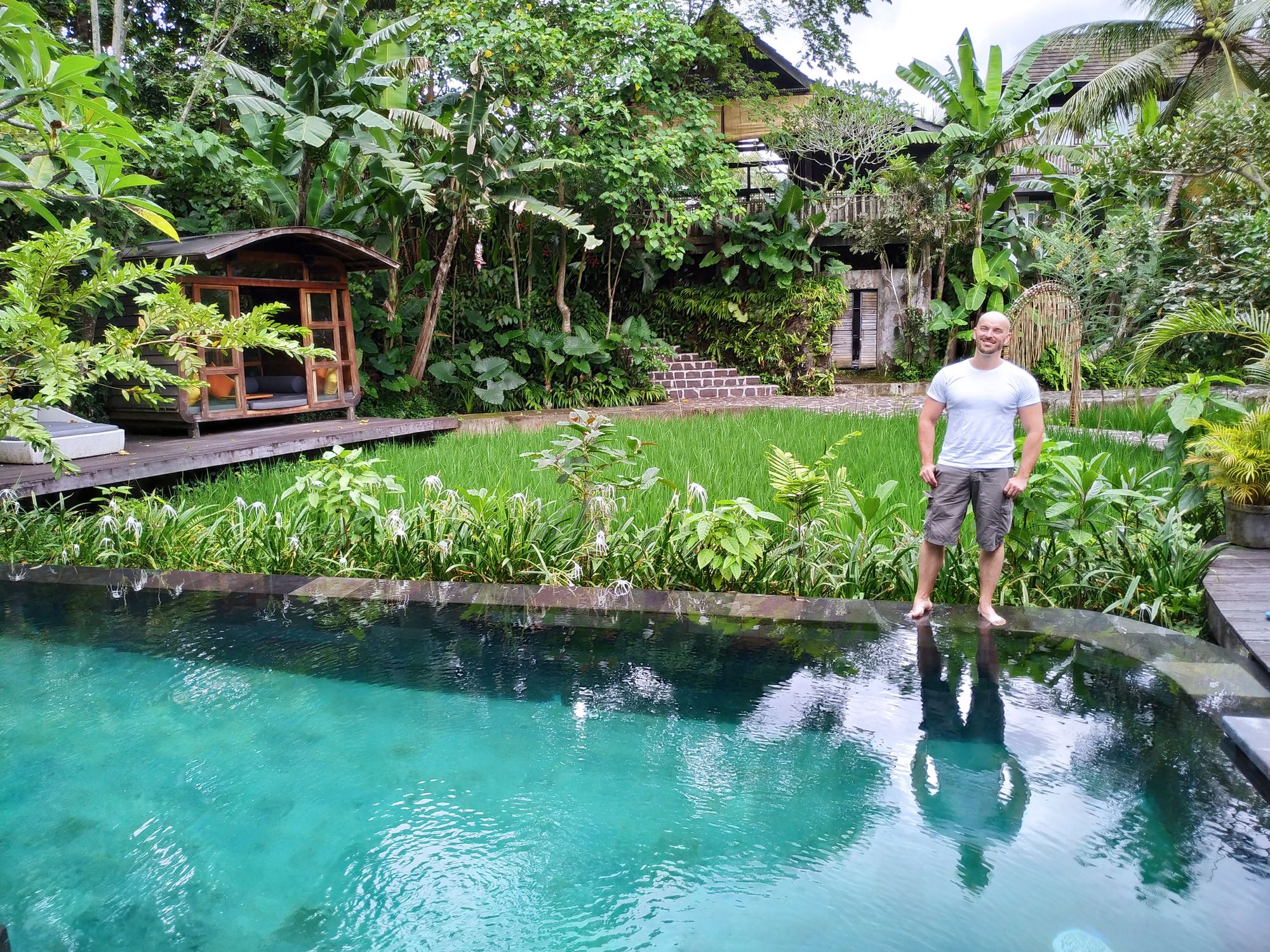
Get Out Of Your Comfort Zone (For Real)
"Get out of your comfort zone" is probably one of the most cliché sentences ever. Instagram is full of spoiled kids saying that when they go "wild" and decide to change the color of their T-shirt.
But in my case, selling all our properties, becoming digital nomads, leaving our home country, and living in the Baltics for some time triggered a series of ideas and changes in our minds that were the seeds from which Companio grew.
It took a lot of courage (and a good deal of that lack of judgment I mentioned above) to do that. Your "Comfort Zone" may not be a physical location. It may be your office, that stuff you do but secretly hate, that other stuff you'd love to do but think you are not good enough to do, the comfort of your family and your safety net, or a lot of other stuff.
Just find that and get out of there.
Get Ready To Work Harder, Not (Just?) Smarter
And talking about cliché sentences, "Work smarter, not harder" is one of the most stupid sentences I've ever heard. If experience has shown me something, is that you have to work your a** off to make your startup grow.
So stop looking for ways to work smarter or tools to make your life easier, and start getting your hands dirty.
Get ready to work hard, harder than you've ever worked at your 9 to 5 job. You will have to work 12-14 hours per day, sometimes even on weekends, and sometimes for months. You need to be ok with that.
Be Humble And Flexible, And Wear As Many Hats As Possible
Some time ago, one of my C-Levels said "I won't do that, it's not in my contract". I obviously mentioned that Companio is not a big corporation or an old-fashioned company. It's a startup. There's no such thing as "This is not in my contract", we all do what's needed to push things forward. Full period.
One of the best qualities of Spaniards is that we are flexible and willing to do whatever is needed. We'll never refuse to do something because it's not in our contract.
When I started Companio (Tu Empresa En Estonia back then), I did everything. And I mean everything. I designed the website, developed the dashboard and IT platform, gave support to the initial customers, and even prepared the accounting reconciliation report for the accountants.
Even today, I have to get involved in a lot of stuff that a CEO "is not supposed to get involved in". That includes coding, customer support, product management, Q&A, design, and copywriting, to name a few.
If you are not doing that, your startup is not going to work, especially at an early stage. You are never too important or too "C-Level" to help when it's really needed. Be humble and flexible.
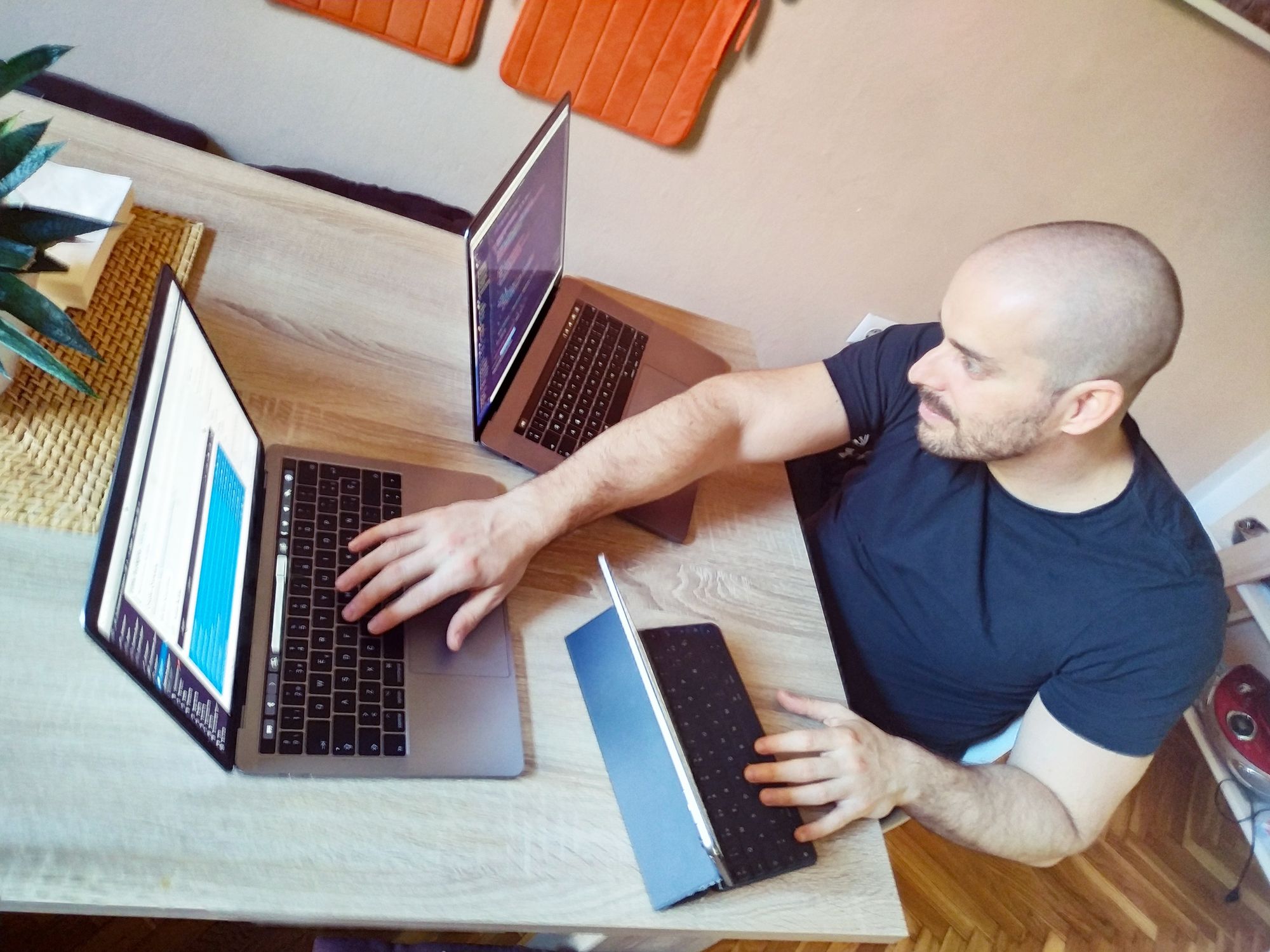
Not Everything Is A Bed Of Roses
When COVID hit Europe hard, during the Spring of 2020, we had just arrived in Sofia. One week after our arrival, they closed the borders, and we were trapped in a city we didn't know in a foreign country. We didn't speak the language and didn't know anything about the local coronavirus restrictions and regulations.
As Bulgaria imposed a lockdown, we found ourselves locked in our small apartment while the future of the business was uncertain. We needed to work hard, and there was nothing else we could do anyway. So we started working hard, 12-14 hours a day, including weekends. After months of isolation, long working hours, and the gloomy evolution of the pandemic, we burned out. It was a dark period, and we had a really hard time.
I am telling you this because being a startup founder is usually depicted as a wonderful journey to the land of unicorns. Startup stories focus on the exits of successful founders. Nobody speaks about burning out, about the eventual anxiety attacks you go through, the stressful periods, and all that shit.
Running a business is rewarding, yes, but there will be dark moments. You have to be ready to go through them.
Every Year Is Going To Be Different, Learn To Learn And Adapt Fast
Every time I have thought "Ok, I got this", a new challenge appears that ruins my plans of relaxing and living a peaceful life :). Every year of my entrepreneurial journey has brought a new challenge.
Growing your customers, building a platform that works, hiring employees because you can't do things alone any longer, automating processes, adapting to the legislation changes and regulations, building a proper HR structure and hiring managers, surviving a pandemic, surviving a war...
You will have to learn to learn everything anew constantly. You won't have the benefit of settling down and saying "Here, I have this under control", because your business, and the world, are constantly changing.
If Everything's Going Well, Something's Going Wrong, You Just Don't Know It (Yet)
One of the worst periods of my life started in the summer of 2021. We had just gotten our COVID shots and, for the first time in almost two years, we could travel again.
We decided to go on vacation to Antalya, Turkey, in August. Life was bright all of a sudden. We were traveling again, and I felt relaxed and not stressed at all about work.
Then, our CFO sent us her resignation letter. During COVID, she had been working alone at the office and feeling isolated. She needed a break.
That ruined our first vacation in years and triggered an awkward series of events that unfolded for months. We had to go back to Tallinn, find out what happened, restructure the team, move to a new office, and make sure to create a team spirit there and make sure people were feeling happy and fulfilled working at our new headquarters. It was a very hard winter for us.
That is just an example, but use it as a cautionary tale. If you are not getting questions from customers lately, it's not because they are all geniuses now, it's because your contact form is not working. There's always something going wrong, so you better know about it.
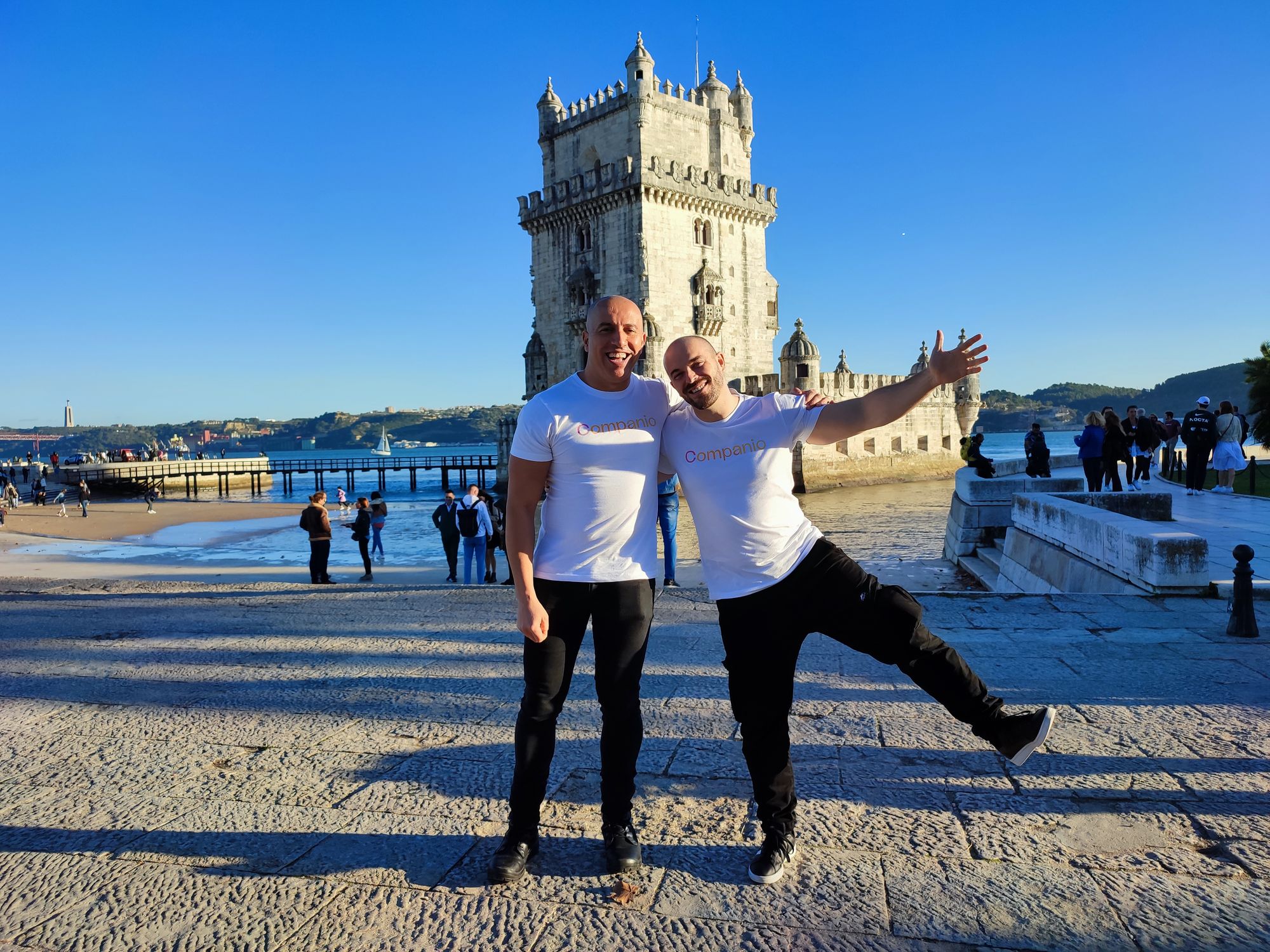
Learn When To Ignore The Startup Bullshit
The startup world is full of bullshit. Also, there is a whole ecosystem of businesses feeding on early startups that want to convince you to attend their events, go through their programs, or buy their stuff. Some of that stuff is legit, but most of it is just a waste of time and money.
As an early startup founder, all you should worry about is getting customers. Growing. Growing. Growing.
Don't waste your time and money going to summits such as WebSummit. You can (and will) meet investors without it. Having a booth there may be a good idea when you are rising brand awareness later. It won't, however, make your startup grow at the beginning. Focus all your energies on bringing customers or users to your platform and improving the product.
Enjoy The Journey!
This is the most difficult, but most important tip I've got for you. Enjoy the journey. It's going to be hard when things don't work as expected.
Some days you will get back home late at night with tears in your eyes. There will be days when you can't get out of bed. Some other days you will be so burned out that you simply cannot open your mail client.
But then there are those days when you remember why you are doing this. When you go for a walk to see the sunset and you remember that you are free. That you have built something remarkable from scratch. That you are doing something to change the world, something you can be proud of, and something that is all yours.
Enjoy it.




Comments ()